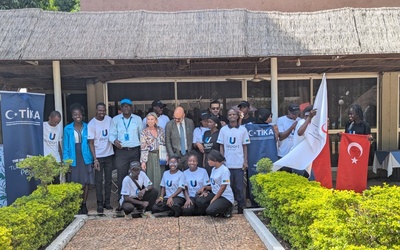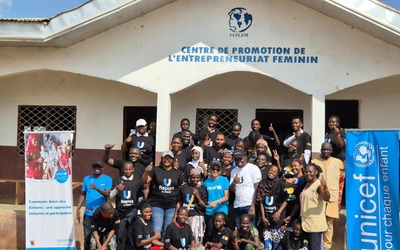Child labour refers to the employment of children in any work that deprives children of their childhood, interferes with their ability to attend regular school, and that is mentally, physically, socially or morally dangerous and harmful. This practice is considered exploitative by many international organisations. Legislation across the world prohibit child labour. Nevertheless the laws which fights against child labour do not consider all work done by children as child labour; exceptions include work by child artists, family duties. (specific house chores) as well as supervised training, certain categories of work such as those are by all means the most common work suitable for children.
In developing countries, with high poverty and poor schooling opportunities, child labour is still prevalent. In 2010, sub-Saharan Africa had the highest incidence rates of child labour, with several African nations witnessing over 50 percent of children aged 5–14 working. Worldwide agriculture is the largest employer of child labour. Children in Africa today are often forced into exploitative labour due to family debt and other financial factors, leading to ongoing poverty. Other types of domestic child labour include working in commercial plantations, begging, and other sales such as boot shining.
Child labour has existed to varying extents. In the case of Cameroon child labour is being practiced in the form of child hackers and enslavery in whole house chores. Child hacking and Begging in Cameroon is alarming whereby we find children both male and female ranging from ages of about 6 and above either begging or selling groundnuts, bananas, a pot of fried meat,pear,sweets running helter skelter behind road users and vehicles persuading them to buy.
The kind of jobs children work in depends on if they find themselves growing up in a rural area or an urban area. Children who were born in urban areas often found themselves working for street vendors, washing cars, helping in construction sites, begging on the street, and sometimes even working as exotic dancers. While children who were born in rural areas would work on farms doing physical labour, working with animals, and selling crops. Of all the child workers, the most serious cases involved street children and trafficked children due to the physical and emotional abuse they endure. Another issue that often comes into play is the link between what constitutes as child labour within the household due to the cultural acceptance of children helping out with house chores. In this case some families exaggerate by making these children work more than they ought with no age limit.
To address the issue of child labour, the United Nations Conventions on the Rights of the Child Act was implemented in 1959. Yet due to poverty, lack of education and ignorance, the legal actions were not/are not wholly enforced or accepted in Africa.
Some common causes of child labour includes poverty, in Cameroon there are many people who live in poverty and the United Nations describe poverty as those who live below one dollar per day, and as such these family members use children in order to earn a living by sending them into the streets to sell not minding the consequences this has on the children. Also a Vast majority of child labour is found in rural settings and informal urban economy; children are predominantly employed by their parents, rather than factories. Poverty and lack of schools are considered as the primary cause of child labour.
WHY CHILD LABOUR EXISTS
· Poverty: when children have no option left rather than to work for their survival.
· When the government fails to provide basic requirements for children such as schools.
· When the only earning member of the family dies or is suffering from a serious illness.
· Natural calamity like tsunami, floods etc, also drag children towards child labour
CONSEQUENCES
The presence of a large number of child labourers is regarded as a serious issue in terms of economic welfare. Children who work fail to get necessary education. They do not get the opportunity to develop physically, intellectually, emotionally and psychologically. Children who work instead of going to school will remain illiterate which limits their ability to contribute to their own wellbeing as well as to the community they live in. Most of these children working on the streets are victims to sexual abuse and child trafficking.








